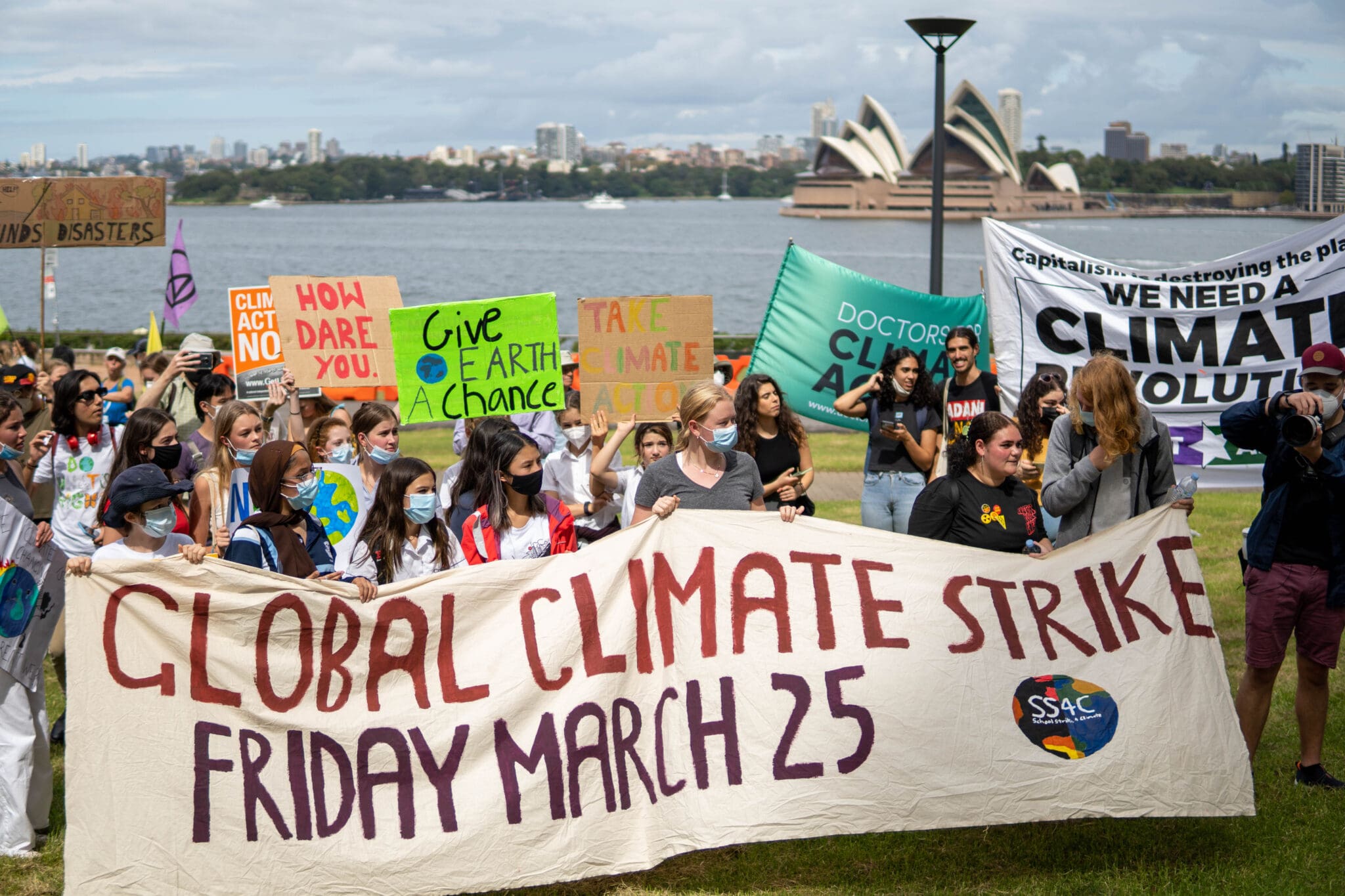The NSW Government will vote on a bill tonight that will seek to place extensive restrictions and penalties on protests, following multiple consecutive years of major protests across the state.
Newtown Greens MP Jenny Leong tweeted a picture of the Roads and Crimes Legislation Amendment Bill 2022 earlier this afternoon. The photo revealed that the Bill seeks to “create offences for certain behaviour that causes damage or disruption to major roads or major facilities.”
Described as “anti-protest laws” by Leong in a speech set to be delivered in parliament tonight, Leong will argue that it is a bill which seeks “to criminalise the behaviour of the people who are trying to save us”.
“[Those] who are taking action to address the climate emergency, who are taking to the streets to call for increased nurse to patient ratios, who are mobilising in their thousands calling for black lives to matter and an end to Aboriginal deaths in custody, who are saying enough is enough and marching for justice for women and an end to sexual violence and harrassment,” Leong told Honi.
“It is beyond belief that instead of acting urgently to criminalise those who are profiting off fossil fuels and the destruction of the planet, instead of an urgent bill to end sexual violence, to stop black deaths in custody, or to introduce life-saving nurses to patient ratios, we are instead considering a bill to criminalise those engaging in peaceful protest and nonviolent direct action.”
The photo reveals that, if passed into law, the Bill’s maximum penalty for an offence of this kind is a $22,000 fine or two years imprisonment. However, both penalties may apply if “a person enters, remains on, climbs, jumps from, or otherwise traspasses on a major road… if (a) the conduct causes damage to the road, or (b) seriously disrupts or obstructs vehicles or pedestrians attempting to use the road.”
The second provision clearly targets protests which take place on major streets and roads.
The amendment also applies the penalties to protests occurring in major facilities, which has implications for picket lines and occupations of ‘major facilities’ as a form of protest.
In a follow-up tweet pointing out the NSW Government’s lack of a majority, Leong said that Labor’s support of the bill would allow the government to “ram [the bill] through the lower house”.
“[There was] no briefing, zero consultation, and complete disregard for due process,” she said.
With clear consequences for student activism and protest, the new amendment is reflective of the Liberal Government’s stance on last Friday’s Global Climate Strike, which saw thousands of school and university students, academics and teachers, protest climate catastrophe. It is also likely a response to the recent Blockade Australia climate protests at Port Botany, which targeted freight rail lines and roads.
SRC President Lauren Lancaster told Honi that “the SRC condemns this bill in the interests of fair, public debate and political contestation… These punitive measures will unjustly fall at the feet of people of colour, indigenous activists, and students who are often the ones protesting the loudest.”
This news follows several years of heavy police presence and resistance to student-led activism, notably at USyd education rallies in protest of education cuts, and student protests along major streets.
Lancaster further explained: “We had police brutality against protesters defending the environment and fighting for BLM all throughout the last two years. We had increased surveillance of student activists at university campuses across Australia and now we have this: a patented attack on the Australian people’s right to publicly show dissent, to disrupt daily life in the interest of massive political fights for our generation and generations to come.”
“Couch it in weak references to damage to public property or whatever you like, but no amount of spin can hide the fact that this is the latest in a long line of attacks by the Coalition Government to criminalise and punish protest and political dissent,” she said.
Hand-written on the document, Leong noted “[the bill is] not a bill to criminalise damage to environment and climate but those who take to the streets to protect us from climate devastation.”
“The Greens will oppose this Bill and do all we can to disrupt its passage into law,” said Leong.
The debate in parliament is set to happen tonight. Updates to come.
UPDATE, 11:40 pm: After three hours of debate, the NSW government has successfully passed the bill, with the joint support of the Coalition and Labor.





